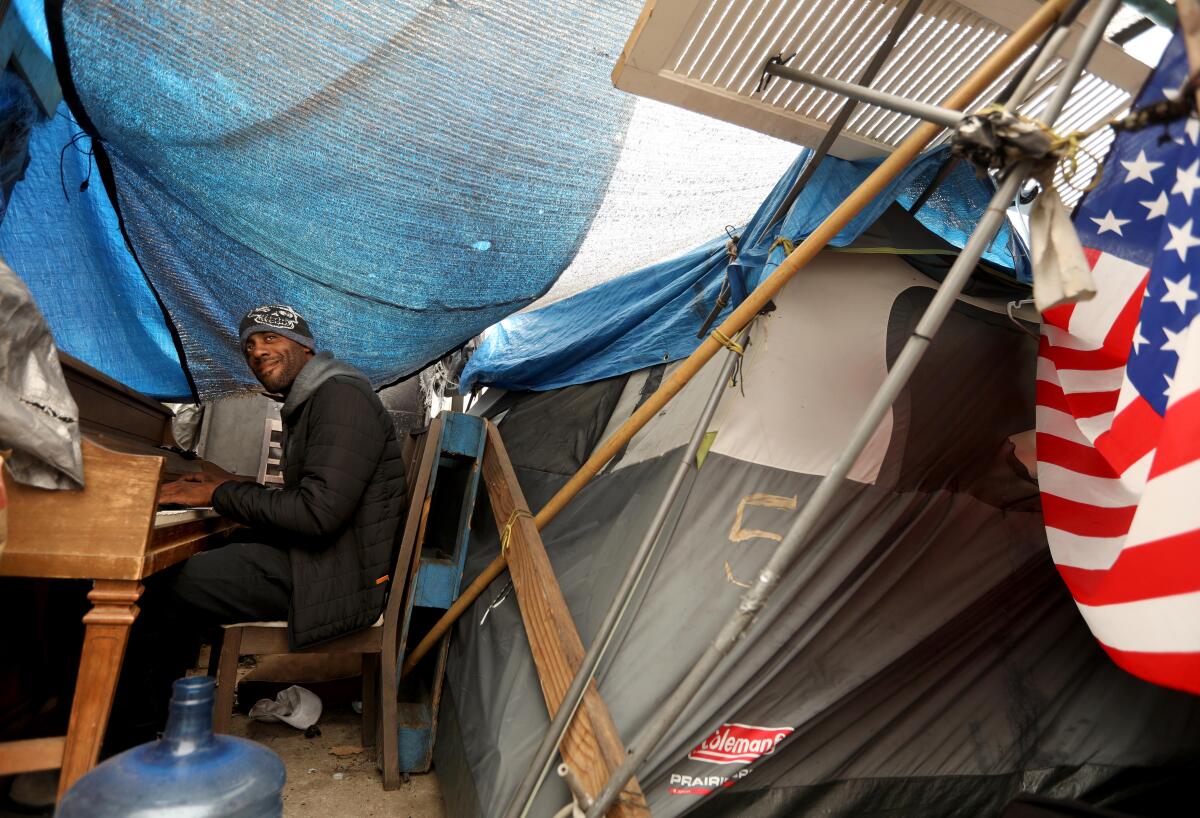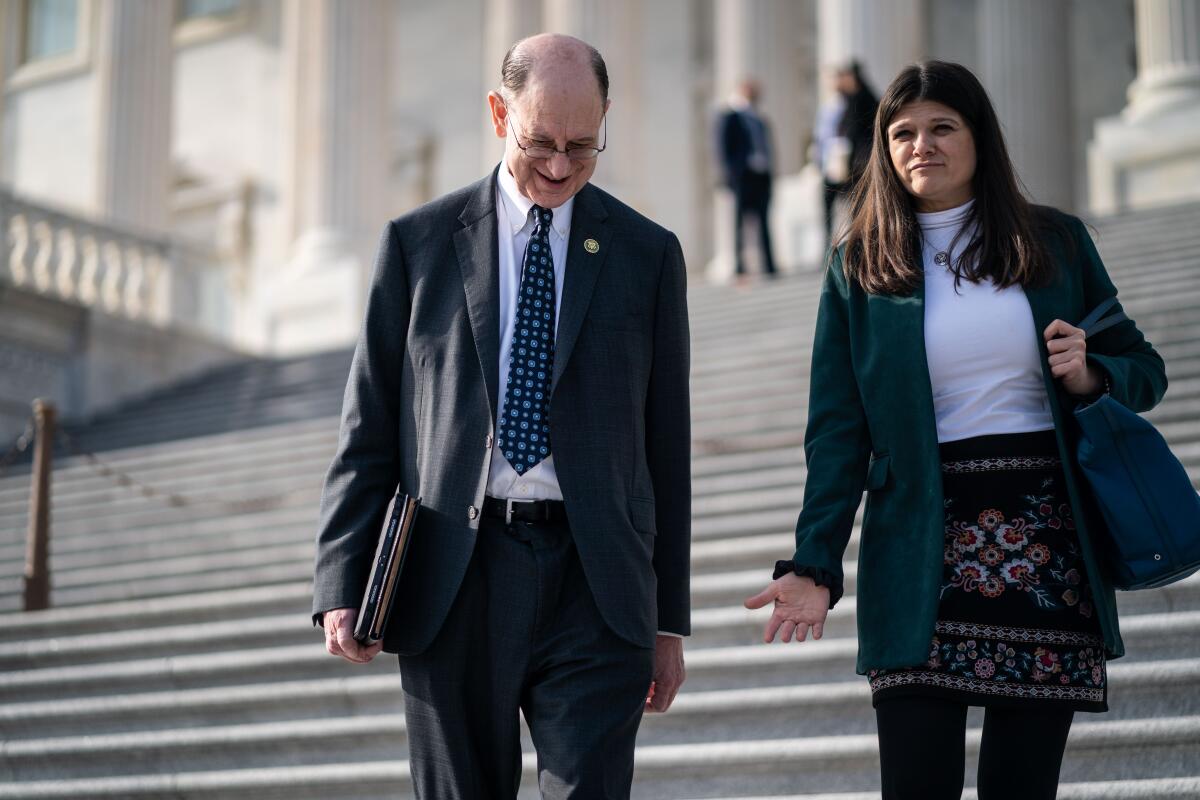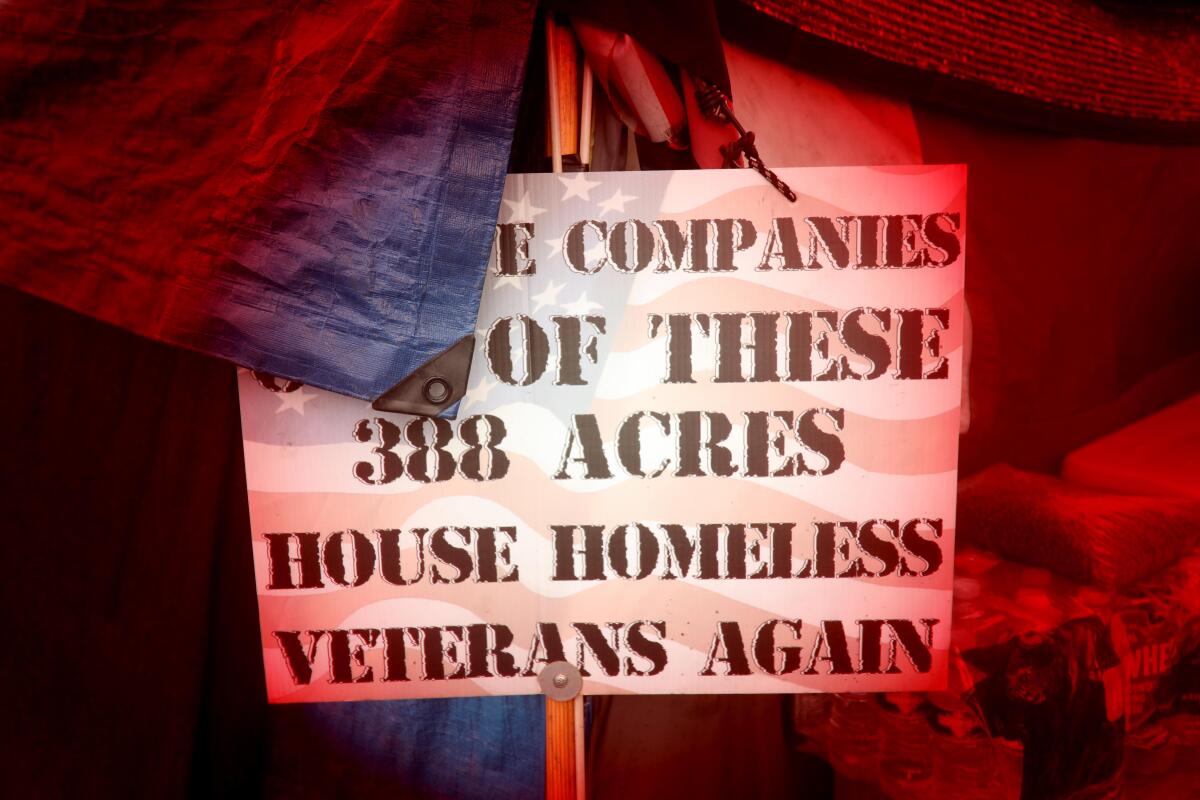-
San Diego sheriff: Migrants did not try to forcefully stop school bus - August 31, 2024
-
One stabbed, another injured in altercation on L.A. Metro bus - August 31, 2024
-
Trump Judge Has ‘Two Options’ as Future of Case Unclear: Analyst - August 31, 2024
-
What to Know About Putin’s Planned Visit to Mongolia Amid ICC Arrest Warrant - August 31, 2024
-
Buying sex from a minor could be a felony under bill headed to Newsom - August 31, 2024
-
Democrat Lawmaker Switches Party to Become Republican - August 31, 2024
-
Misdated Mail-In Ballots Should Still Count, Pennsylvania Court Rules - August 31, 2024
-
Cause and manner of death determined for Lucy-Bleu Knight - August 31, 2024
-
NASCAR Craftsman Truck Series Announces Return To Iconic Circuit In 2025 - August 31, 2024
-
At Pennsylvania Rally, Trump Tries to Explain Arlington Cemetery Clash - August 31, 2024
Feds to scrap a rule that denies housing to the most disabled veterans
Responding to months of pressure from veterans advocates and elected officials, the U.S. Department of Housing and Urban Development announced Thursday that it will change a widely criticized rule that excludes the most disabled veterans from subsidized housing designed for them.
The rule, which HUD officials had previously said they could not change, counts service-related disability benefits as income. That compensation, based on the percentage of the veteran’s disability up to 100%, can raise a veteran’s income above the maximum allowed for housing restricted to low-income residents.
“The days of a Veteran having to choose between getting the VA benefits they deserve and the housing support they need are finally over,” said VA Secretary Denis McDonough in a statement. “This is a critical step forward that will help Veterans nationwide — and bring us one step closer to our ultimate goal of putting an end to Veteran homelessness for good.”

Iraq war veteran Lavon Johnson, 35, plays his piano inside his tent along Veterans Row along San Vicente Boulevard in an unincorporated area near Brentwood on Oct. 30, 2021. Johnson was stationed in Fort Hood and deployed to Iraq in 2006 and 2007 and has been living homeless on Veterans Row for about a year.
(Genaro Molina / Los Angeles Times)
“Looks like we’ve got a hell of a victory,” said Rep. Brad Sherman (D-Northridge), who had introduced a bill to change the rule but also pushed former HUD Secretary Marcia Fudge to find a speedier solution.
“Veterans who have served our country should never have to choose between housing and their disability benefits,” said Mayor Karen Bass, who pushed for the change. “I wholeheartedly thank the Biden-Harris administration and the many leaders who helped enact this significant policy change which will save lives and bring more veterans inside into permanent housing.”

Rep. Brad Sherman (D-Northridge) and Rep. Haley Stevens (D-Mich.) talk while walking down the steps of the House of Representatives at the U.S. Capitol on Jan. 12, 2023.
(Kent Nishimura / Los Angeles Times)
In a class-action case brought by veterans over a host of complaints against the VA, U.S. District Judge David O. Carter ruled in May that the policy discriminates against disabled veterans. “Those who gave the most cannot receive the least,” he wrote.
HUD’s announcement came on the third day of a non-jury trial over the lawsuit in Los Angeles that was partly to establish what remedy Carter would order to end the discrimination.
“The change is welcomed but years overdue,” said Mark Rosenbaum, an attorney with Public Counsel and counsel in the veterans’ lawsuit. “It shouldn’t take a lawsuit and a federal judge’s ruling that a cruel and insane policy that has kept our most disabled veterans on the streets instead of in housing is unlawful and discriminatory to finally bring it to an end.”
Long a source of frustration and anger among veterans, the issue gained political traction as new housing was being built on the U.S. Department of Veterans Affairs West Los Angeles campus and veterans living in a tiny home village there learned that they could not qualify for it because their income exceeded the limit for veterans’ subsidies called HUD VASH vouchers.
In January, Sherman grilled Fudge in a congressional hearing, saying that, though he was pushing legislation, he thought the solution did not require a change in the law.
“Your department is more functional than Congress,” Sherman told Fudge. “So I’m hoping that rather than turn to us and say, here’s what we should do, I can turn to you and say here’s what you can do.”
“If I could do it today, I would do it,” Fudge, who retired in March, replied.
Sherman attributed the eight-month delay to bureaucracy but said he thought a conversation he had with Acting Secretary Adrianne Todman had helped.
“I think she moved on it more,” he said.
Bass also pressed Todman for the change as a member of the U.S. Conference of Mayors. In April, more than 50 mayors from across the country raised the issue in meetings with key members of the Biden administration, U.S. Senate, and U.S. House of Representatives.

A sign in support of housing homeless vets rests outside a tent on Veterans Row along San Vicente Boulevard in West Los Angeles on Oct. 30, 2021.
(Genaro Molina / Los Angeles Times)
HUD also awarded $20 million available for additional administrative funding to 245 public housing agencies in 43 states to expand their housing search assistance to support veterans, expand landlord recruitment for the program, offer incentives and retention payments, help veterans with security deposits, and provide landlord-tenant mediation activities.
The new policy also requires public housing agencies that administer HUD-VASH vouchers to set the income eligibility for veterans at 80% of the area median income, up from the 50% that generally applies. This expanded eligibility will allow for more veterans to be housed.
Under the new policy, disability compensation will still be counted as income for calculating the amount the veteran must pay for rent, but not for eligibility. Tenants in subsidized housing are required to pay 30% of their income in rent.
Sherman said he held back on the rent calculation in his legislation because a change would have had budget implications making it harder to pass.
“I wanted to go with eligibility first and then come back and deal with the rent calculation,” he said.
Sherman said he thought the policy change was better than a ruling out of U.S. District Court would have been because it is not subject to appeal.
Source link













